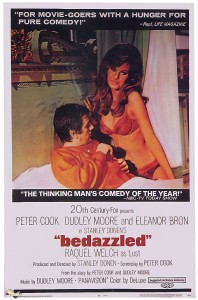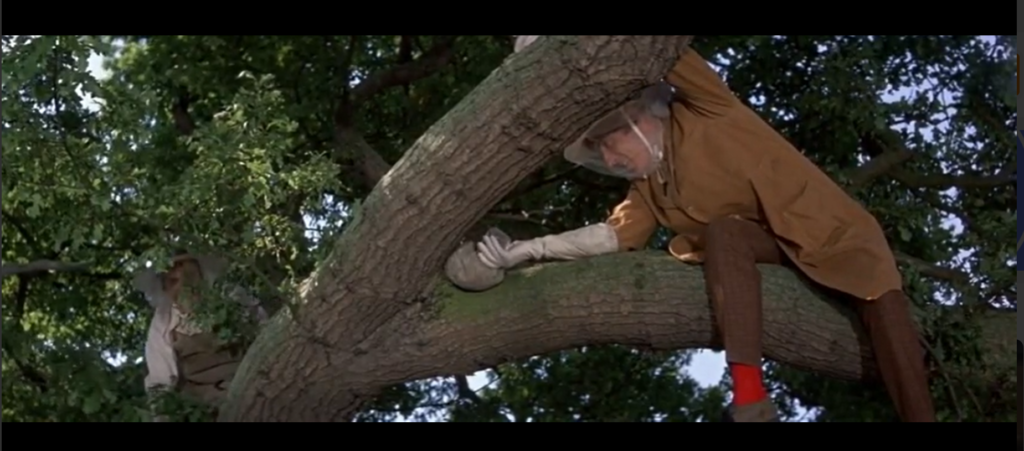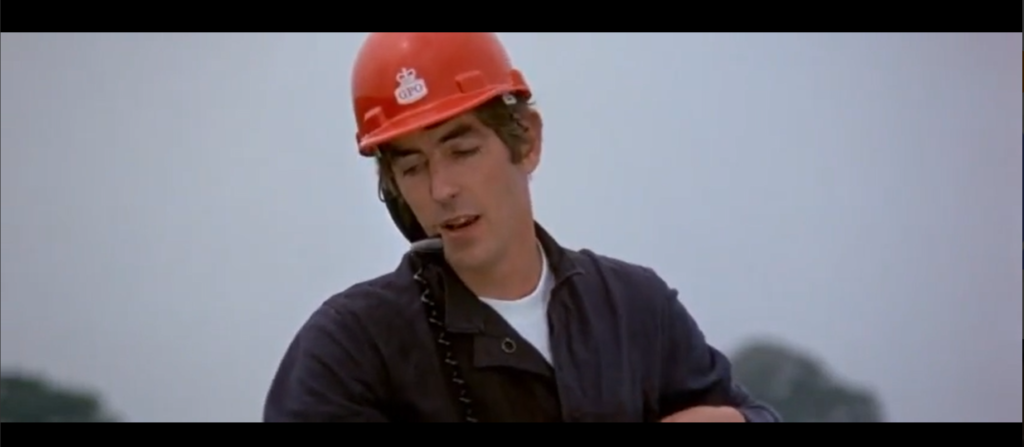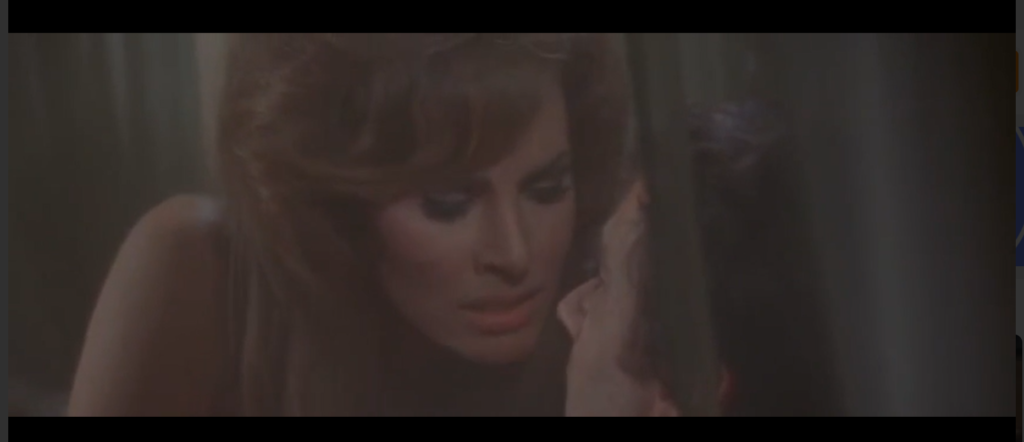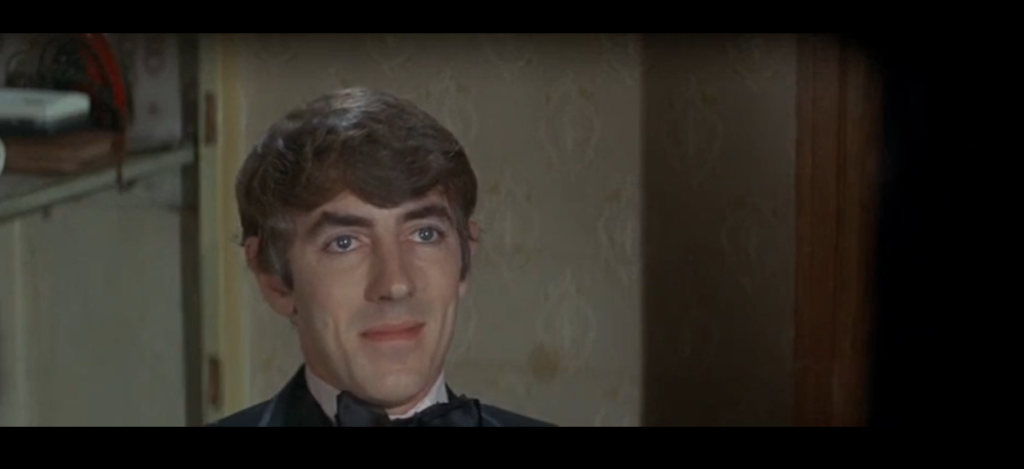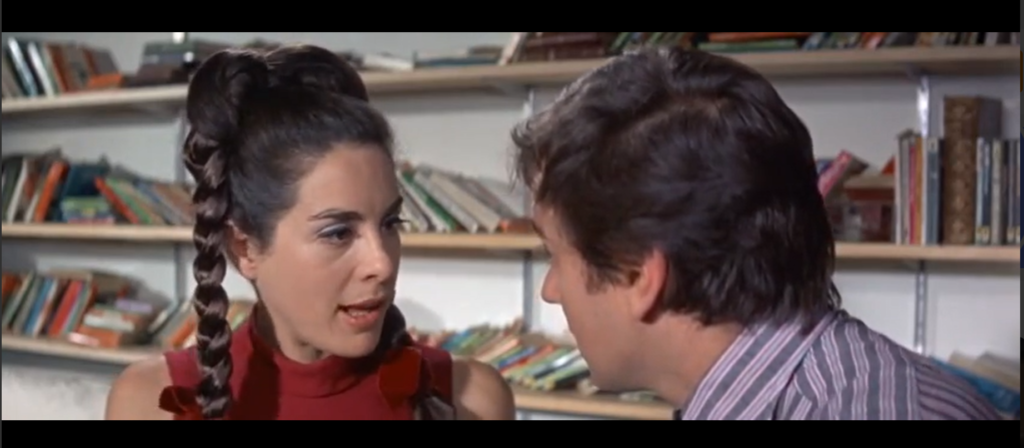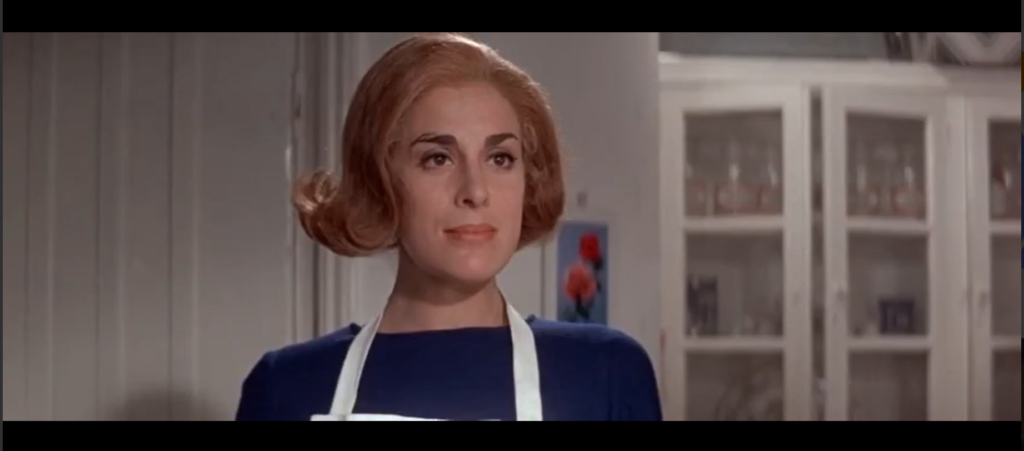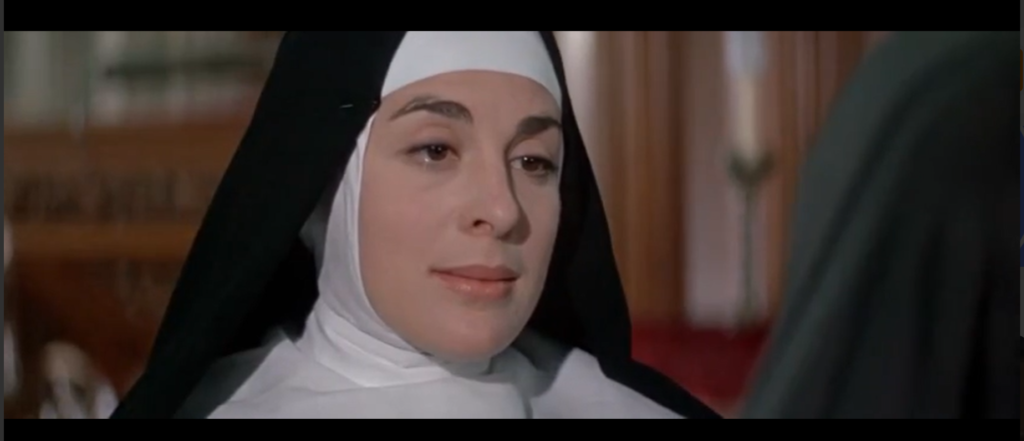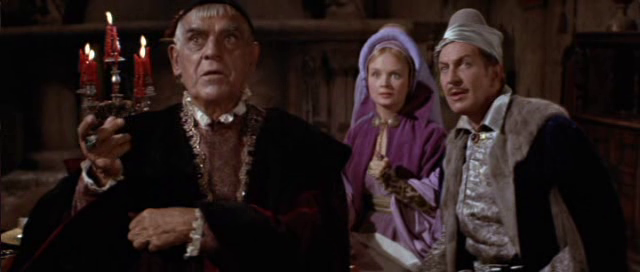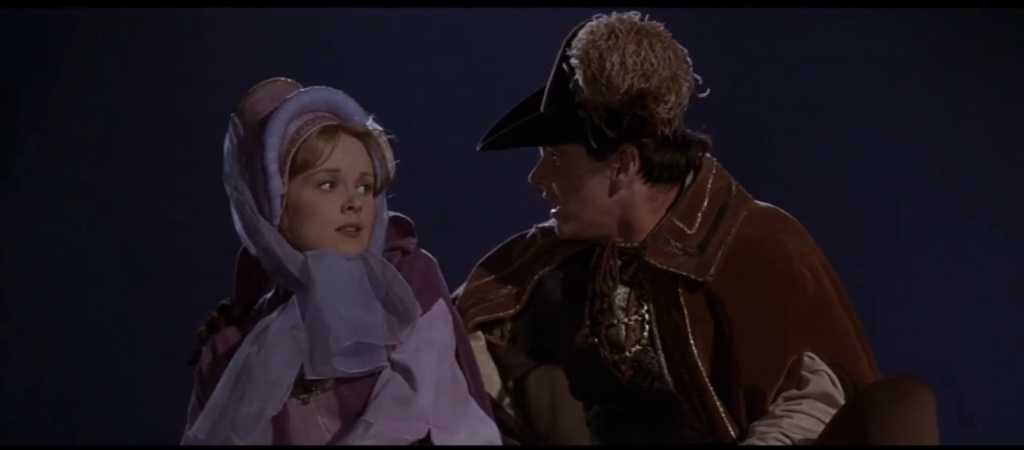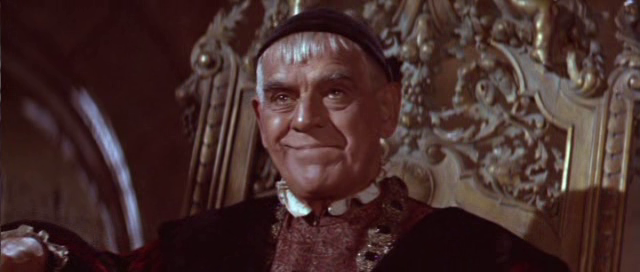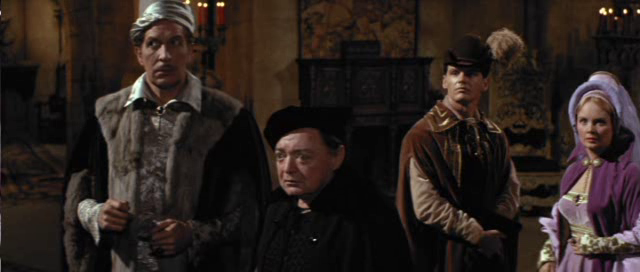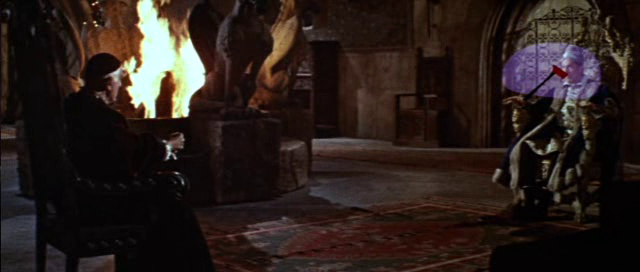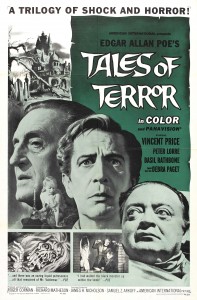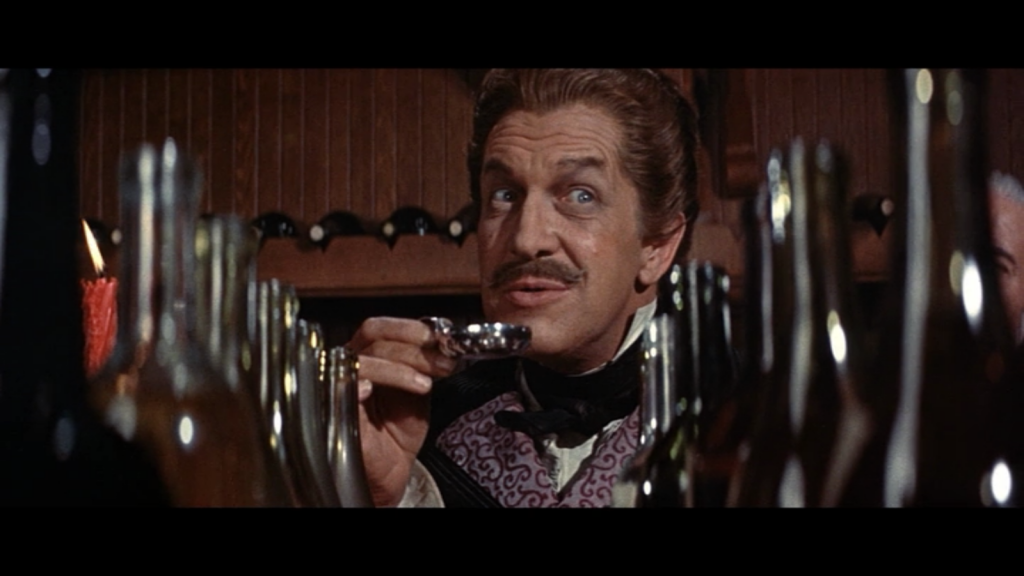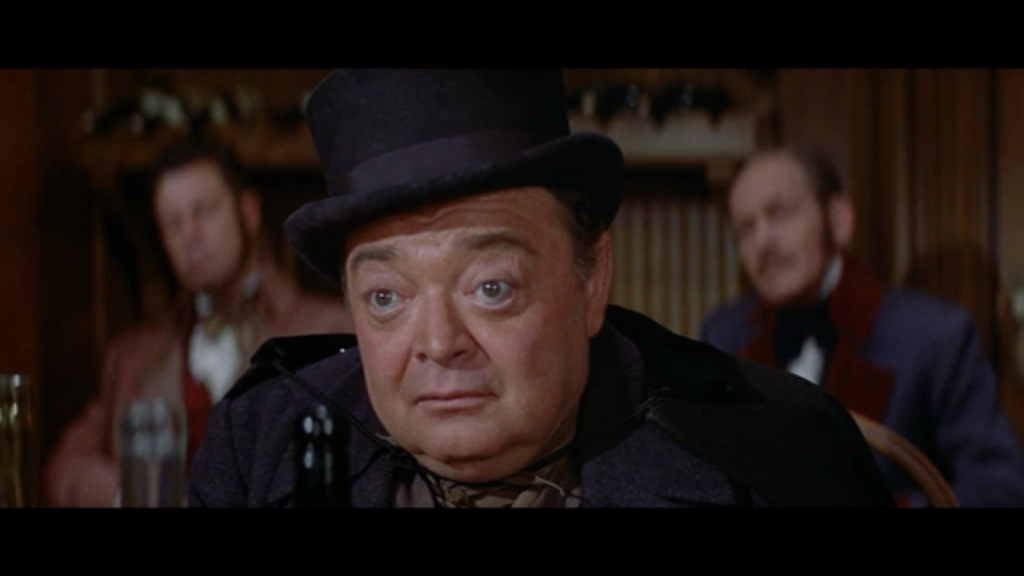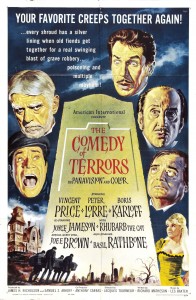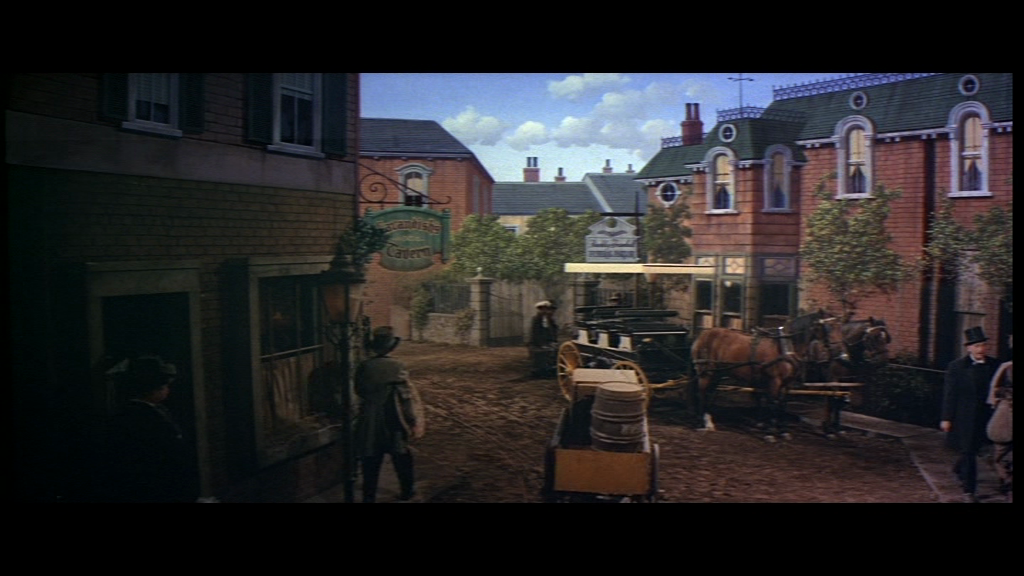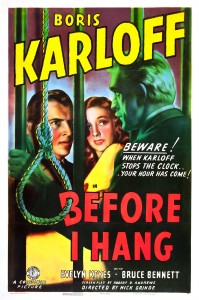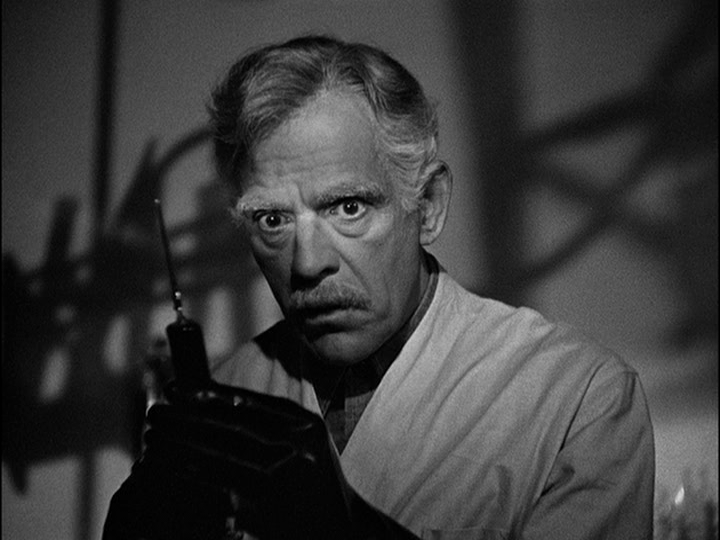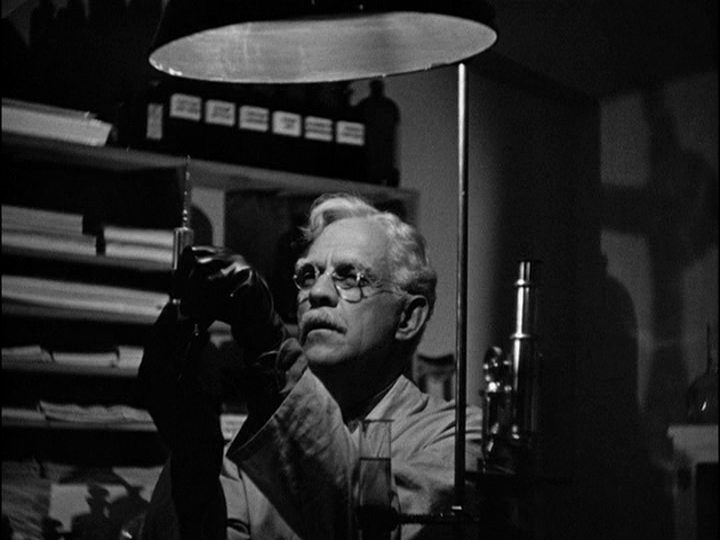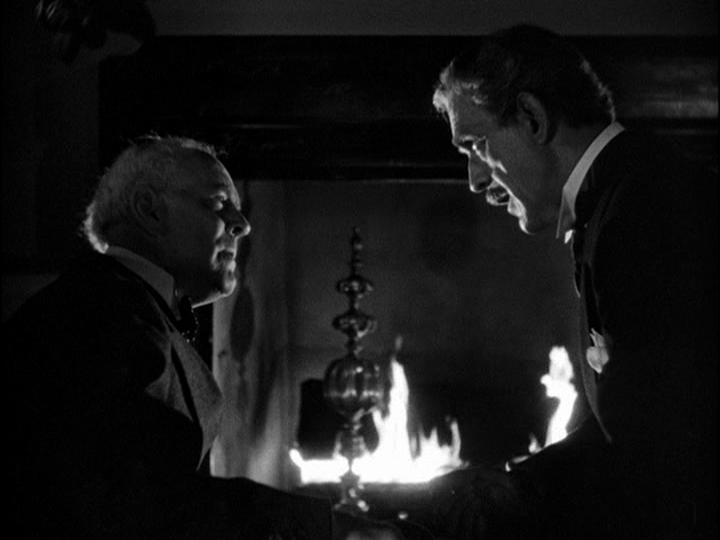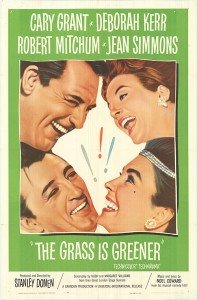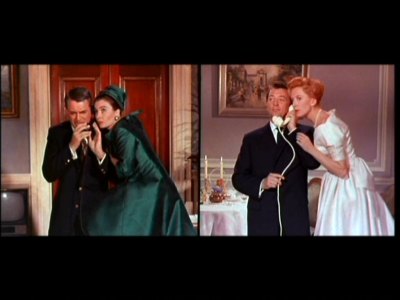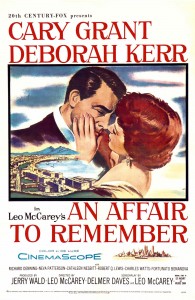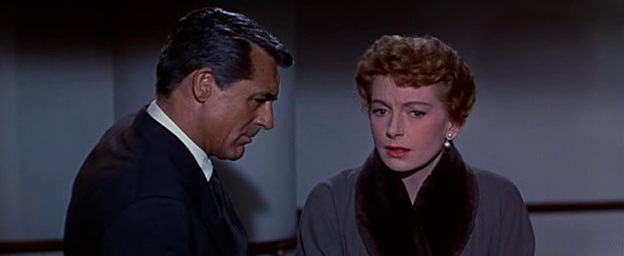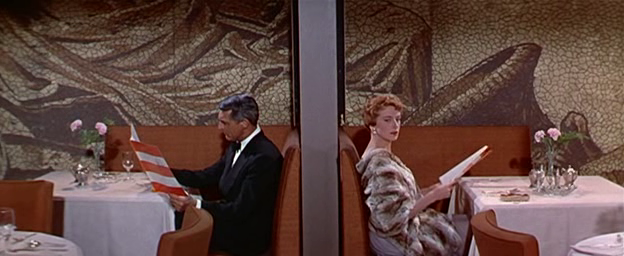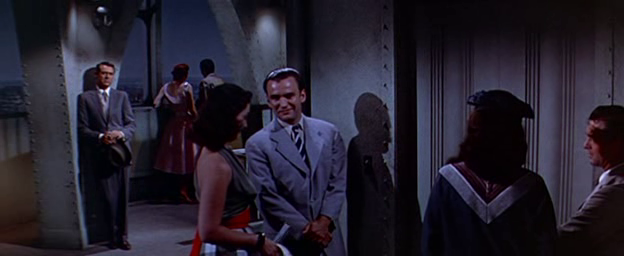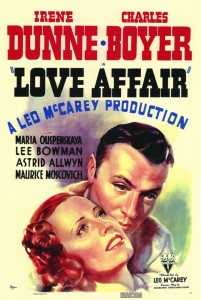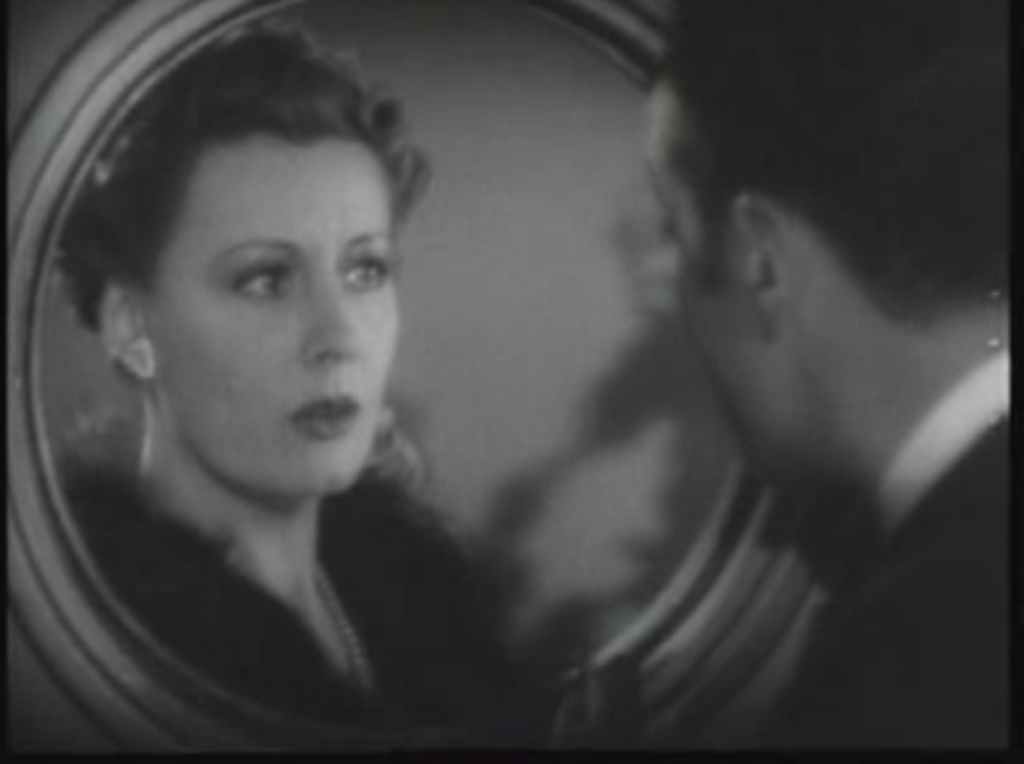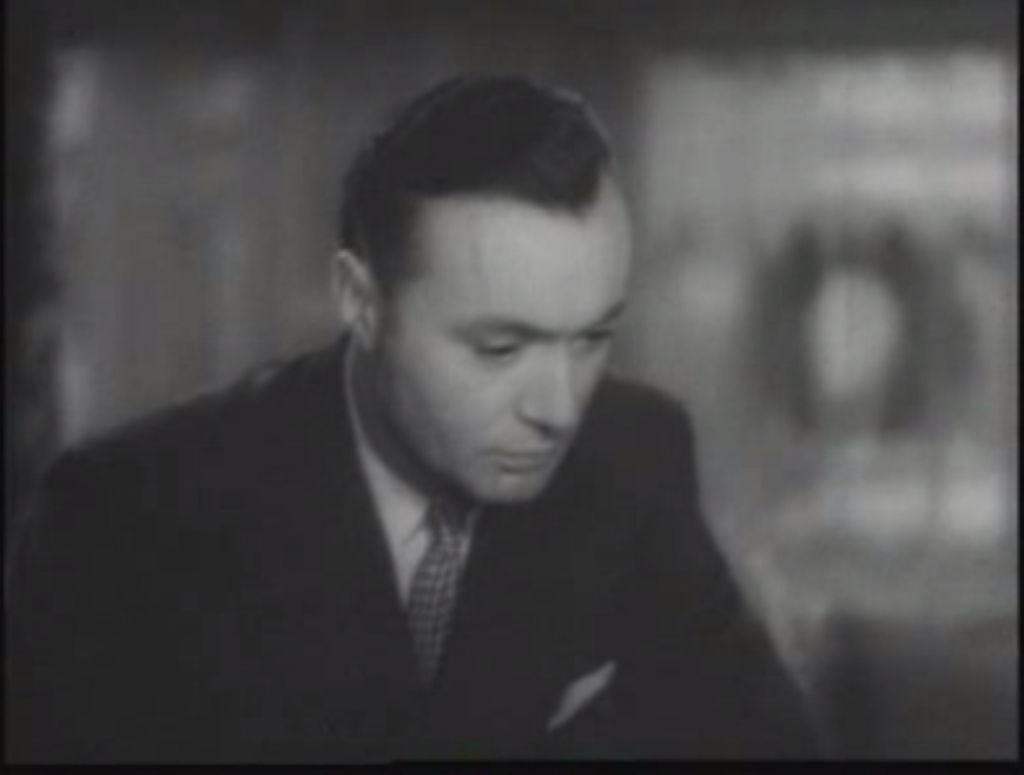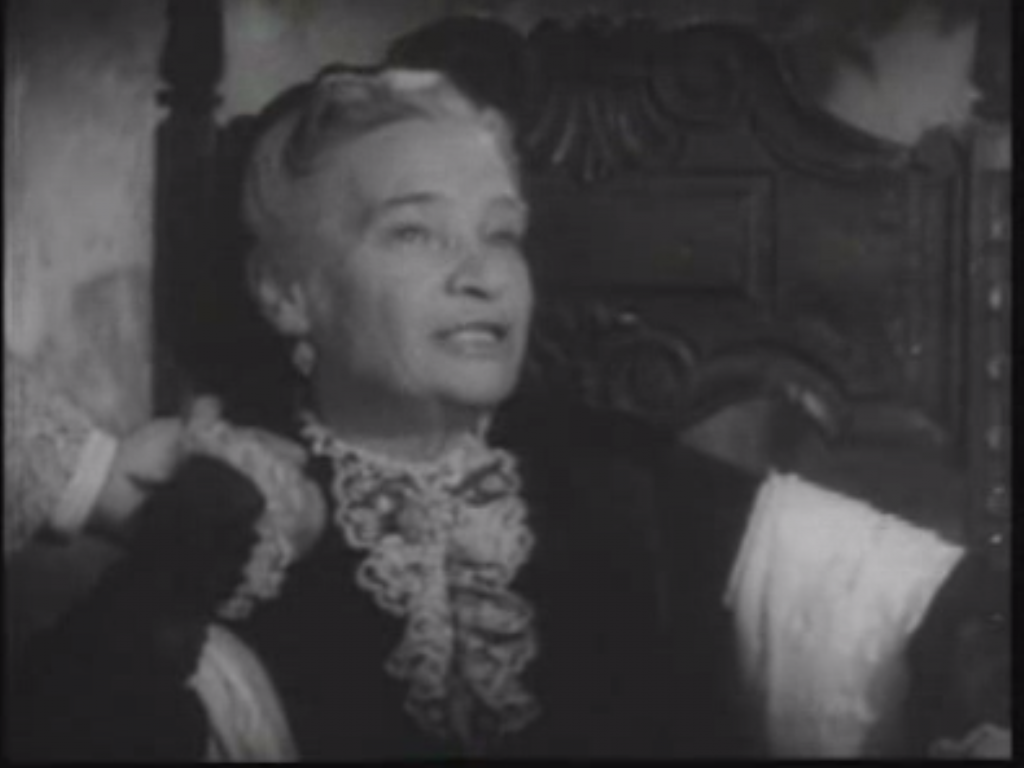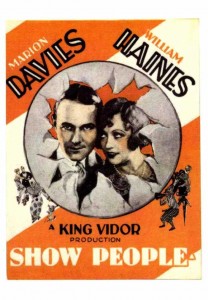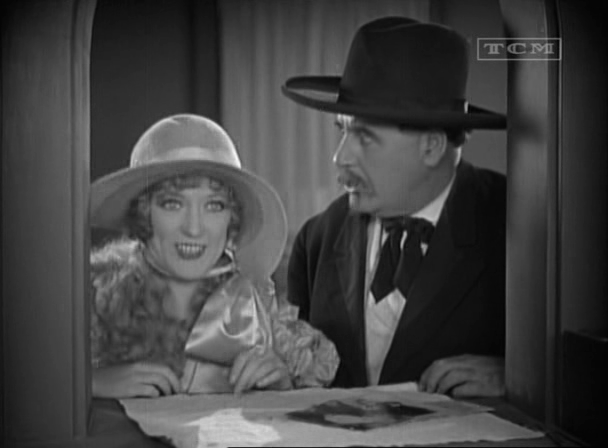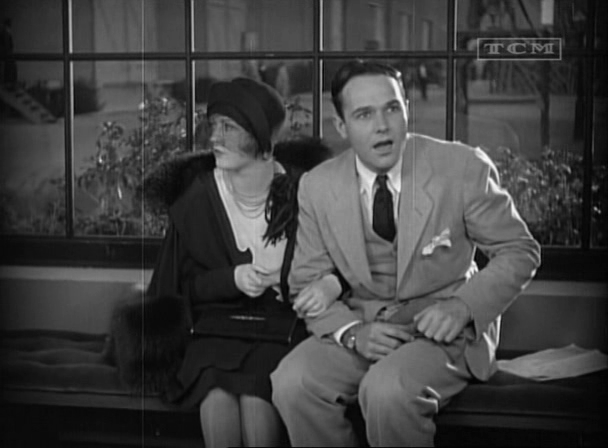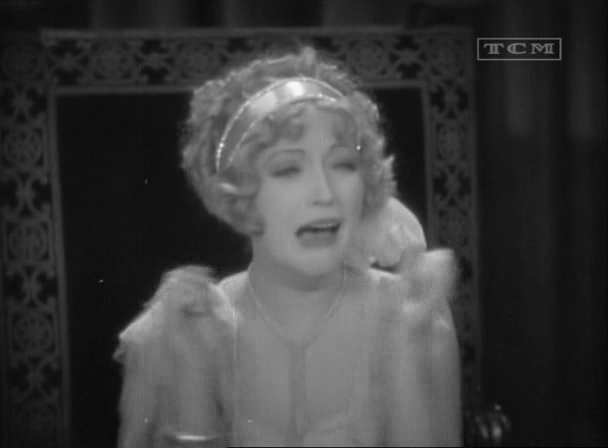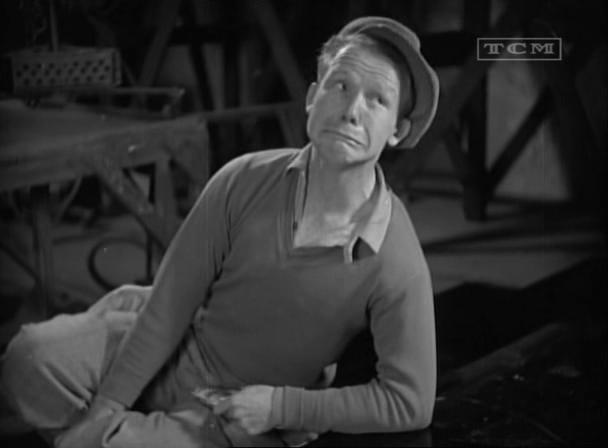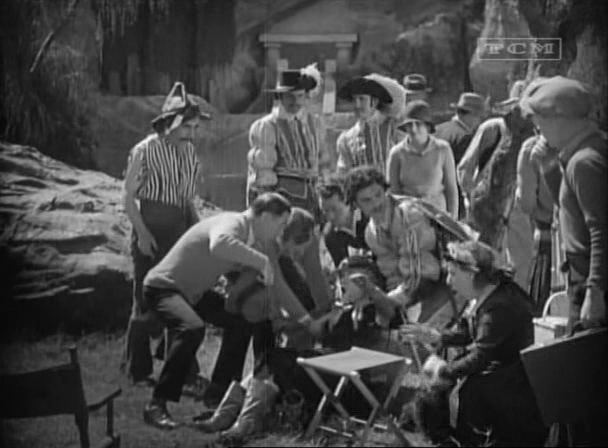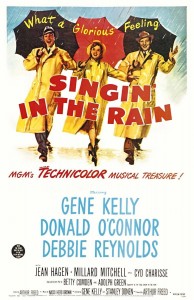|
Genres, Themes, Actors, and Directors:
- Actors and Actresses
- Cyd Charisse Films
- Debbie Reynolds Films
- Gene Kelly Films
- Hollywood
- Jean Hagen Films
- Musicals
- Romantic Comedy
- Stanley Donen Films
Response to Peary’s Review:
Peary argues that this “most uplifting of films” remains “one of the great joys of the cinema”, and is the “ultimate musical for lovers of the film medium”. He notes that “not only do innovative directors Gene Kelly and Stanley Donen use ‘film’ (color, lighting, editing, special effects, camera placement and movement, and sound) to enhance the fabulous songs and dances, but, as scripted by Adolph Green and Betty Comden, [it’s] also one of the best, funniest, most perceptive and informative pictures ever made about the movie industry”. He notes that “Green and Comden beautifully spoof numerous Hollywood types: suicidal stuntmen who’ll do anything to be in pictures; starlets with pretensions of being serious thespians who will jump out of cakes to be part of show biz; brainless gossip columnists; tough directors who think the set is a battlefield; smug diction coaches; confused producers; flaky music coordinators; cocky actors who know the importance of ‘image’ to stardom…; and stupid, conceited actresses who believe their own press”. The gamut is covered!
Peary accurately argues that the “musical numbers are all outstanding, with Kelly, [Donald] O’Connor [as Kelly’s friend], and Reynolds displaying amazing athletic dancing skills”. He points out that some “unforgettable highlights include the three dancing on furniture and singing ‘Good Morning’; O’Connor running up walls and flipping during ‘Make ‘Em Laugh'” (an astonishing number no matter how many times you’ve seen it!); “the ‘Broadway Rhythm’ number, especially when Kelly and Cyd Charisse perform a dreamlike ballet; and the [incomparable] title number, which has Kelly happily dancing through puddles”. Peary notes that “in the film’s great[est] moment, the camera moves directly over Kelly’s beaming face for a close-up just as he sings ‘There’s a smile on my face’.” In his Cult Movies book, he lists several other musical highlights; a personal favorite is “Don and Cosmo [O’Connor] bewildering their diction teacher with some tongue twisters and flying feet in the ‘Moses’ number” (I’d forgotten how fun that one is!).
Meanwhile, Peary writes that “the scenes without music are [also] delightful”, and in Cult Movies he points out some specific ones: “Don’s [Kelly’s] hilarious movie stunts which somehow he survives; the knife-in-the-back squabbling between Don and Lina [Hagen]; Lina’s unsuccessful diction lessons, where she can’t learn to properly pronounce the letter a in the phrase ‘I can’t stand it’; the fascinating film at [a producer’s] party in which a weird man explains the ‘sound film’; the many humorous incidents with microphones; [and] the finale…”. I agree that each of these scenes or sequences are gems — masterfully written, directed, and acted; indeed, the entire fast-paced screenplay is “delightful movie fare”, as Peary writes.
In his Alternate Oscars (where he votes the film Best Picture of the Year), Peary nominates Kelly as one of the Best Actors of the Year, and Reynolds as one of the Best Actresses (in Cult Movies he writes “how absolutely great, how bubbly, how vivacious she is!”). However, he rightfully acknowledges that Kelly “allows Jean Hagen ample opportunity to walk away with acting honors” — indeed, while her role is perhaps not quite large enough to be considered in the “Best Actress” category, you could argue that her consistently hilarious, memorable performance plays an enormous part in the film’s overall success. Peary writes that “from this picture, we see that Hagen was never allowed the chance to be the fine comedienne… she was obviously capable of being”, and credits “Kelly, the star, the codirector, [for] willingly shar[ing] his picture with his costars.” He argues that “it is not by mere chance that Reynolds, O’Connor, and Hagen have never been better” — and one can’t help agreeing.
Redeeming Qualities and Moments:
- Jean Hagen as Lina Lamont
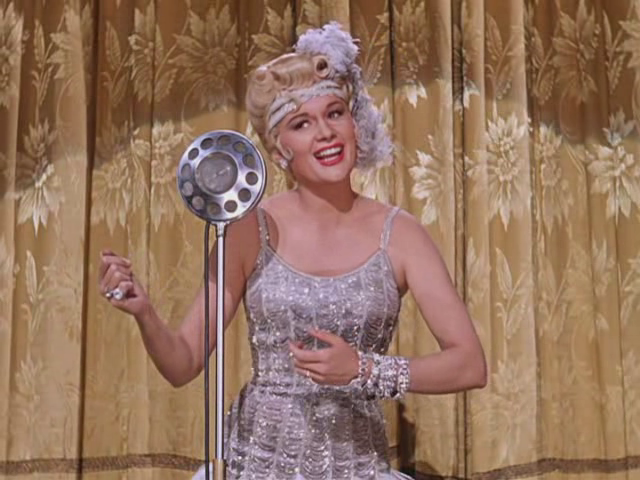
- Gene Kelly as Don Lockwood
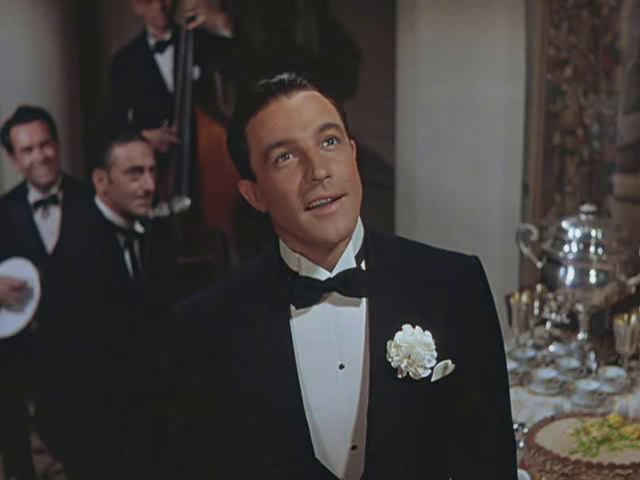
- Debbie Reynolds as Kathy Selden
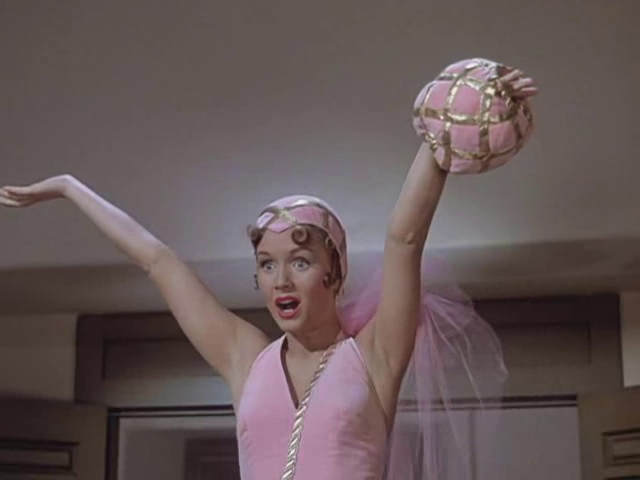
- Donald O’Connor’s phenomenal “Make ‘Em Laugh” number
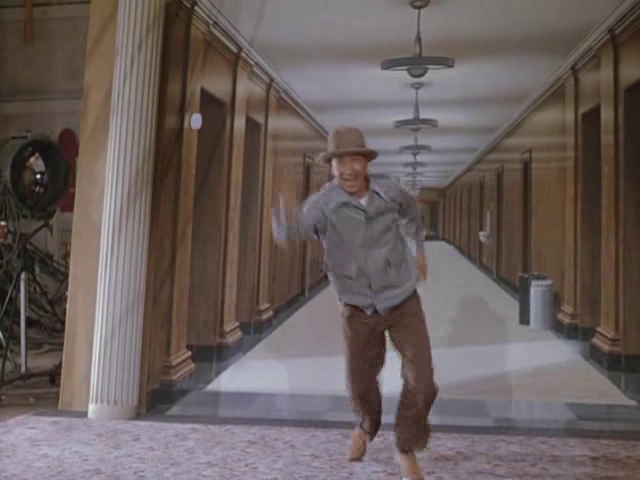
- Kelly’s iconic “Singin’ in the Rain” number
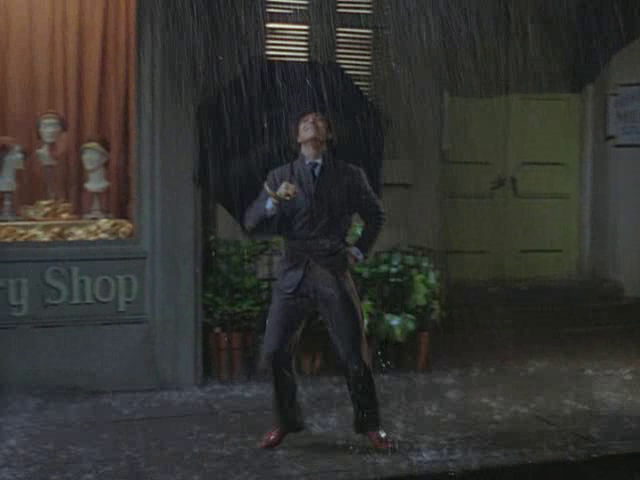
- Kelly, O’Connor, and Reynolds performing “Good Morning”
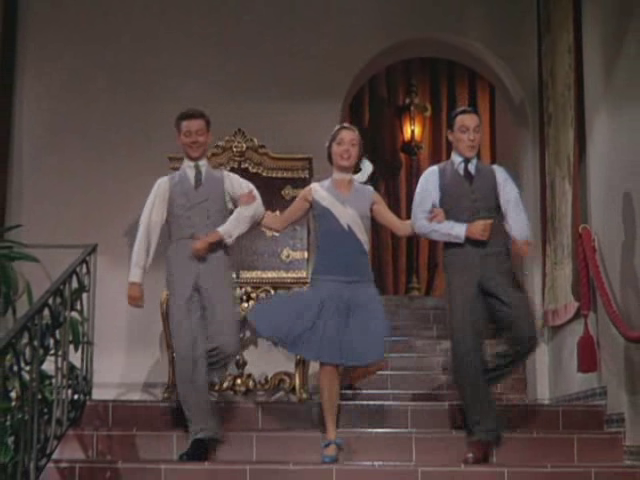
- Kelly and O’Connor performing “Moses”
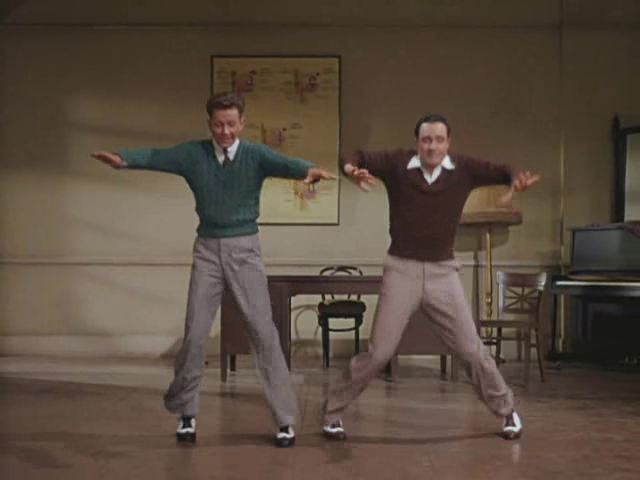
- A hilarious, incisive satire of early Hollywood’s transition to talkies
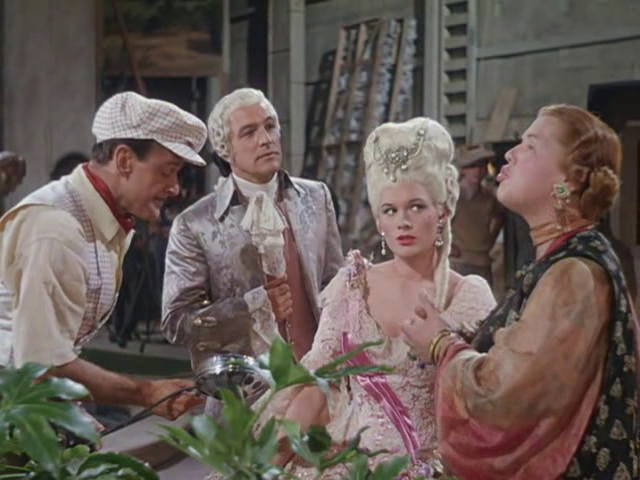
- Vibrant Technicolor cinematography (by Harold Rosson)
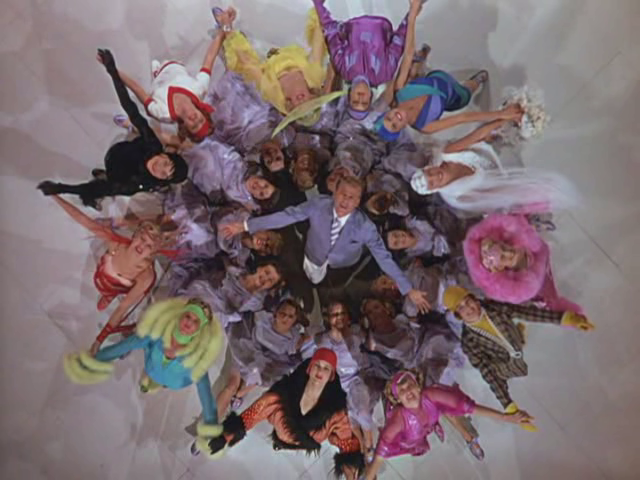
Must See?
Yes, of course!
Categories
(Listed in 1001 Movies You Must See Before You Die)
Links:
|
